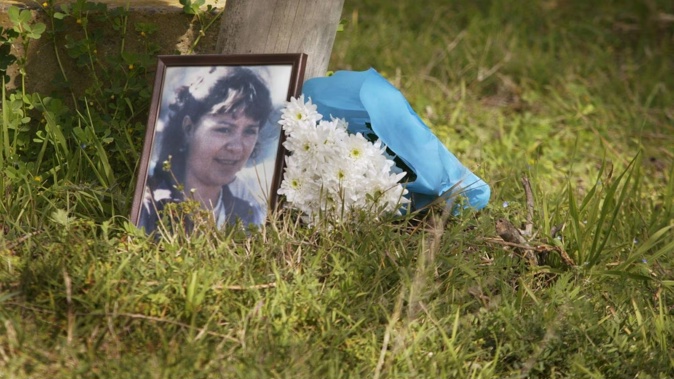

Schoolgirl Colleen Burrows may have died nearly 36 years ago, but her mother and her murderer are still locked in a legal fight over a $15,000 damages claim.
Ida Hawkins, the mother of the Napier teenager killed in 1987, believes she is entitled to the money under the Prisoners’ and Victims’ Claims Act.
Sam Te Hei, one of two men convicted of Burrows’ murder, argues that she does not have a valid claim to the cash from a compensation payout he received for being mistreated in prison.
Hawkins, having won her case in a tribunal and lost it in the High Court, has now won permission to take the matter to the Court of Appeal.
Colleen Burrows’ body was found on a riverbank near Napier in June 1987 after the 16-year-old had been raped and killed at a Mongrel Mob gang pad. Had she lived, she would now be in her 50s.
Te Hei and his co-offender were both sentenced to life in prison.
The co-offender was released in 1998, but Te Hei received a further jail term for attacking another prisoner and remained locked up until 2018, when he was paroled despite Hawkins’ objections.
In 2000, Te Hei was one of nine prisoners awarded compensation collectively totaling more than $300,000 for ill-treatment at the hands of prison officers.
/cloudfront-ap-southeast-2.images.arcpublishing.com/nzme/WKKJKYGG7L5VDMVMV43VKMKDHY.jpg)
Ida Hawkins, several years ago with a picture of her daughter, Colleen Burrows, 16, who was murdered in 1987. Photo / NZME
Hawkins was not able to claim any of that money as the payout came before the Prisoners’ and Victims’ Claims Act 2005, which allows compensation awarded to prisoners for wrongs in the criminal justice system to be passed on to their victims.
However, when Te Hei was given a further payout for a breach of his rights in prison, the Victims’ Special Claims Tribunal awarded Hawkins $15,000 for “emotional harm” caused by her daughter’s murder.
Te Hei successfully appealed the tribunal’s payout to the High Court, arguing that as she was a “secondary victim”, not the actual victim of his crime, she was not entitled to an emotional harm payout.
Neither was she entitled to exemplary damages, for similar reasons.
In a High Court decision last November, Justice Matthew Palmer said Hawkins had suffered a loss “for which she did not receive effective redress”.
However, he found in Te Hei’s favour on the points of law, saying the Victims’ Special Claims Tribunal “did not rigorously analyse the merits of her claim”.
He allowed Te Hei’s appeal and quashed the tribunal’s award of $15,000 to Hawkins.
Now, however, Justice Palmer has given Hawkins leave to appeal the matter to the Court of Appeal.
In a further judgment dated March 17, he approved two central questions in the case.
One was whether an immediate family member of a person who had died through an intentional act could claim damages for emotional harm or bereavement from the wrongdoer.
The other was whether the family member could claim exemplary damages.
Justice Palmer said these questions raised “significant issues in the evolution of common law” which were important enough to outweigh the costs of an appeal.
Because of this, he said bodies such as the New Zealand Law Society, the New Zealand Bar Association, the Criminal Bar Association and the Māori lawyers’ association Te Hunga Rōia Māori o Aotearoa may wish to become involved.
The parties are now waiting for the allocation of a hearing date in the Court of Appeal.
Ida Hawkins has said in submissions to the courts that she was harassed by Mongrel Mob members after Te Hei’s conviction, and this had contributed to her living a reclusive life.
- Ric Stevens, Open Justice

Take your Radio, Podcasts and Music with you









